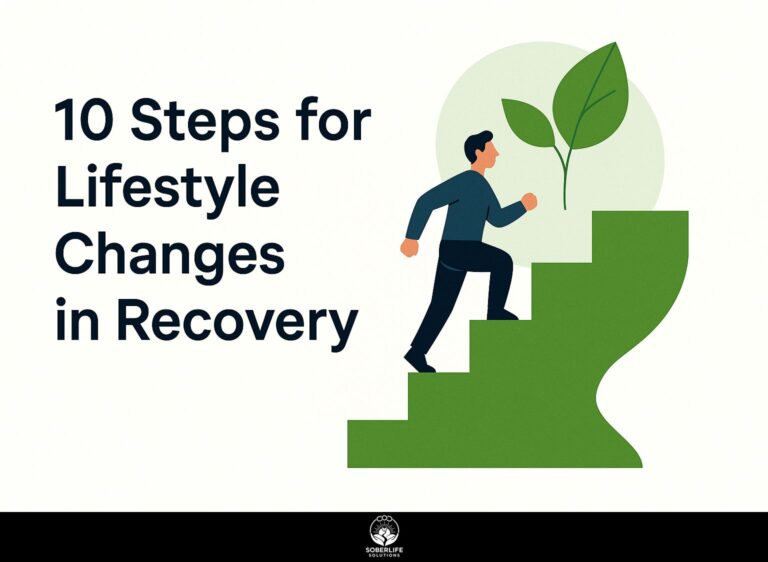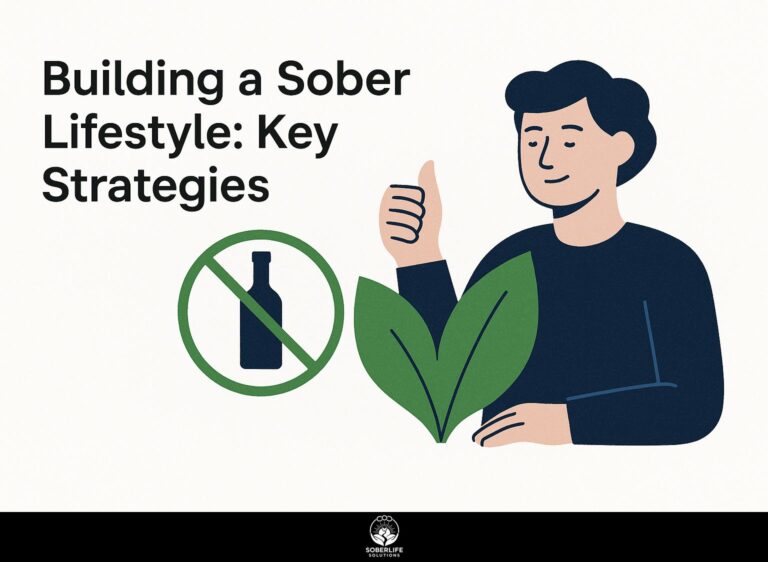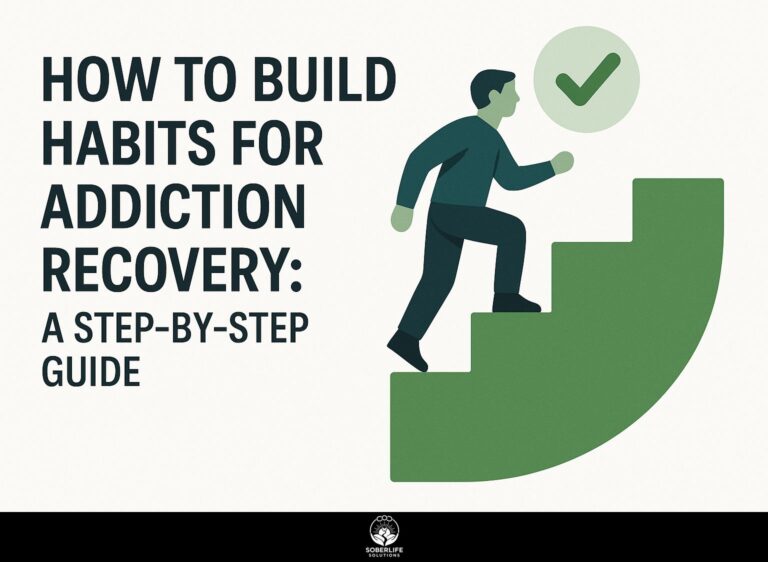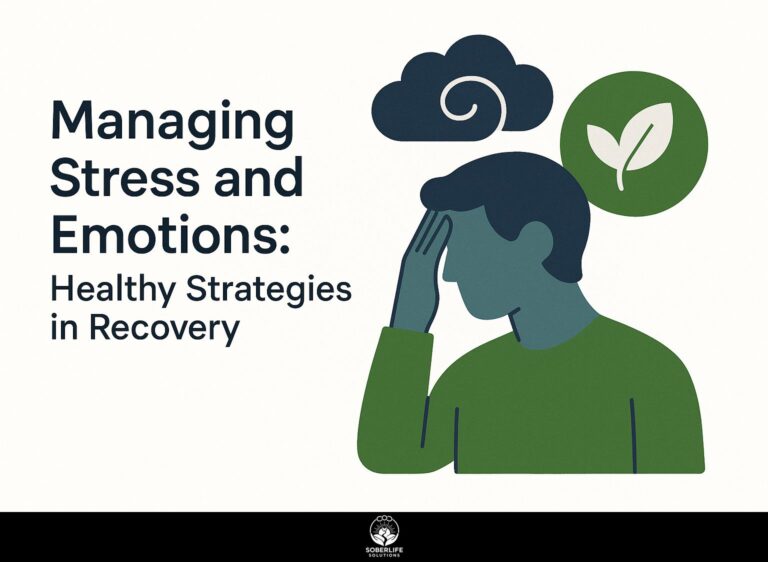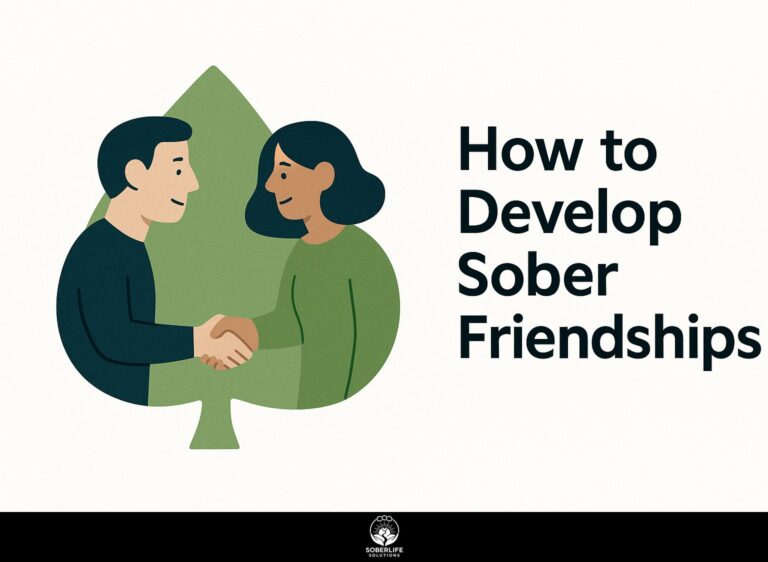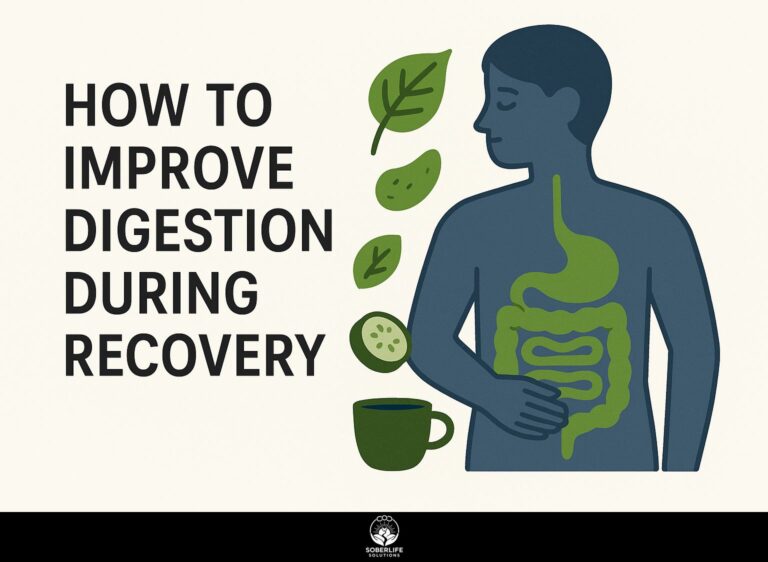Quality Sleep Tips for Addiction Recovery
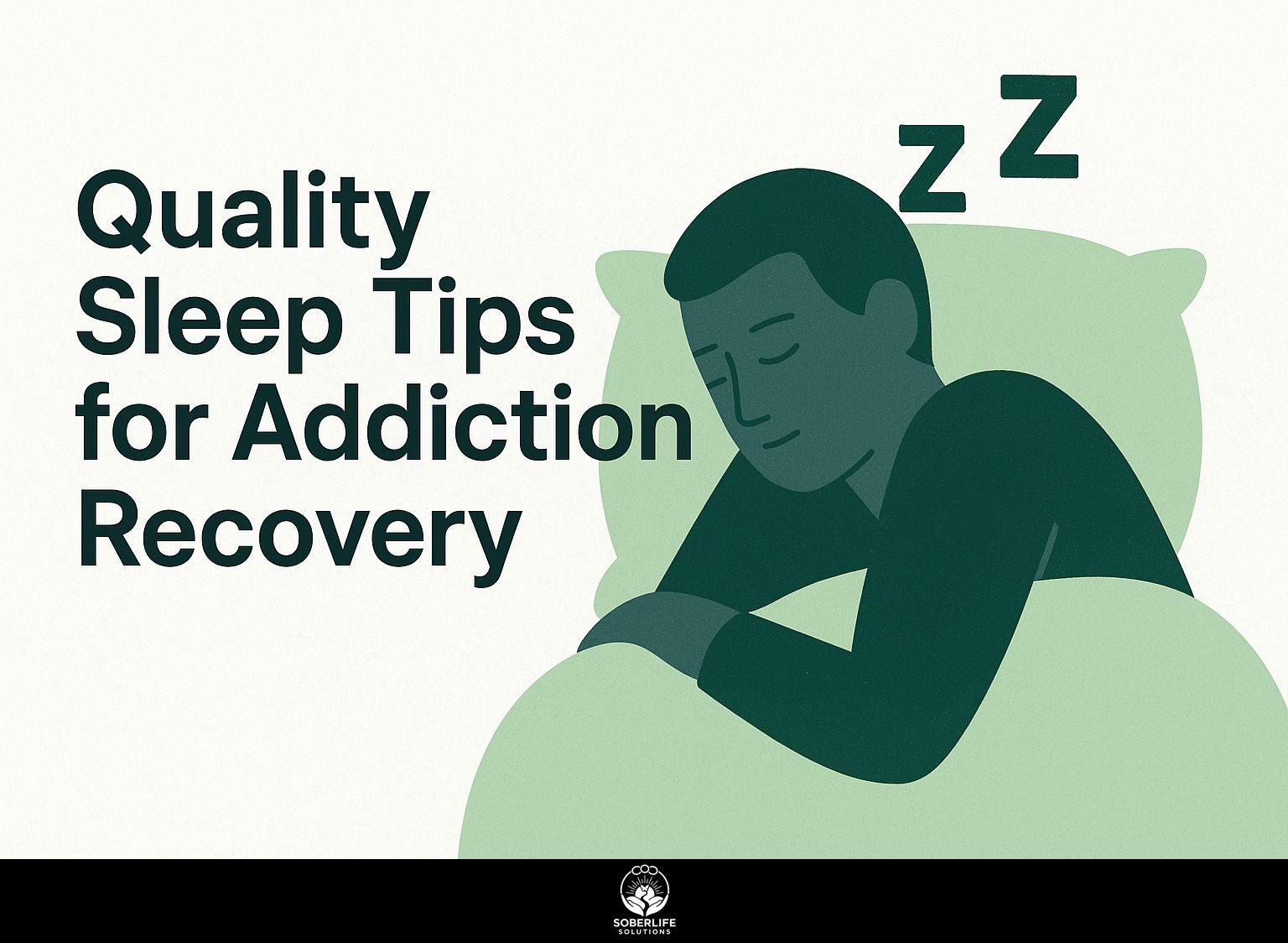
Quality sleep is essential for successful addiction recovery, yet sleep deprivation can hinder progress and worsen mental health issues like depression. Getting enough restful sleep improves your physical well-being and strengthens your immune system, setting a strong base for recovery. In this article, we’ll share practical advice to help you sleep better, so you can rest well at night and support your ongoing recovery. Learn how minor adjustments can greatly improve your health and happiness.
Key Takeaways:
The Importance of Quality Sleep
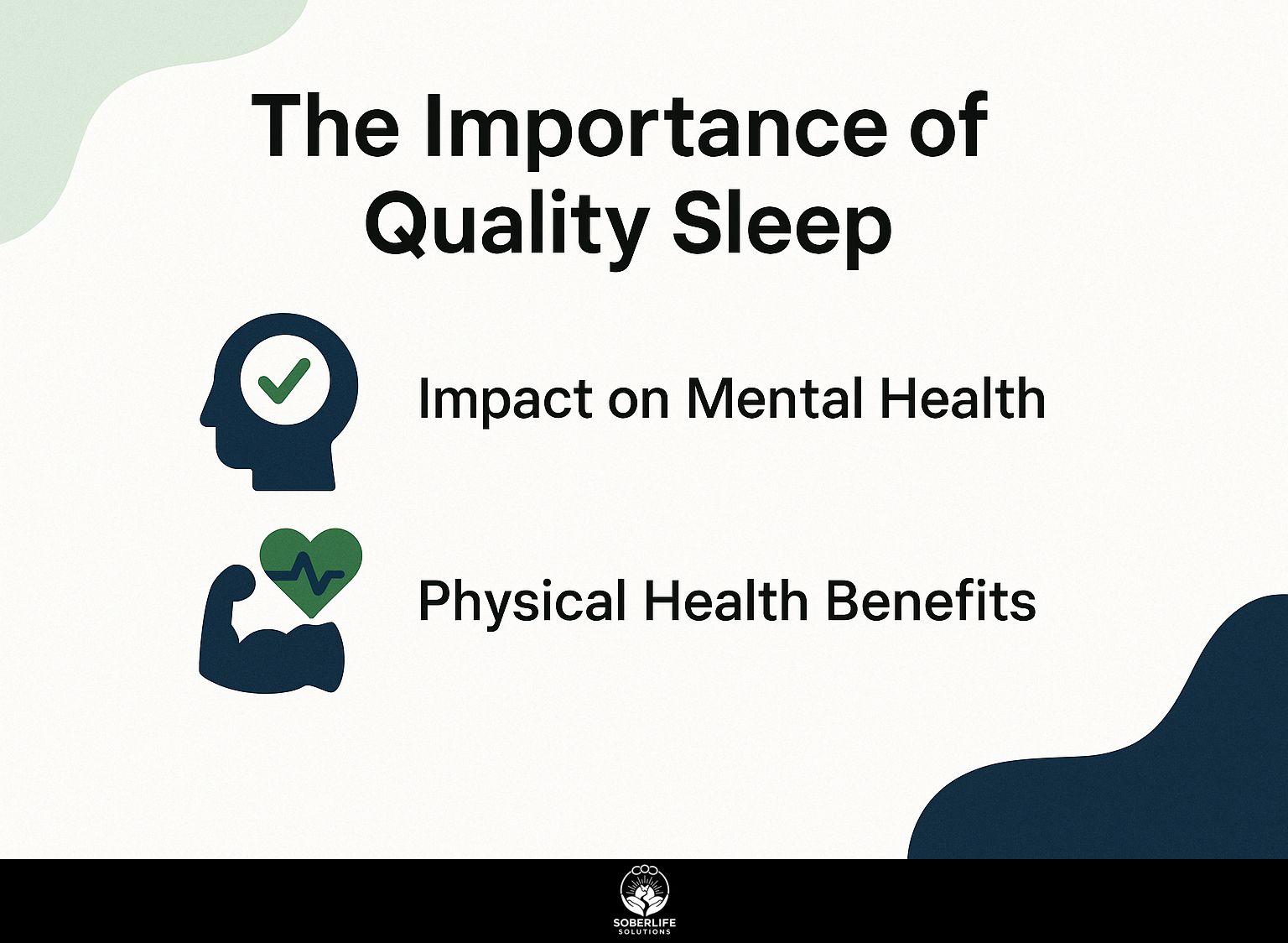
Getting enough sleep is essential for keeping your mind and body healthy, and it helps in recovering from addiction. As mentioned, clean living practices also play a crucial role in the recovery process.
Impact on Mental Health
Studies show that good sleep helps control emotions and improve thinking skills, which are important for managing mood changes related to addiction.
Lack of sleep negatively affects serotonin levels, leading to heightened anxiety and depression. A study published in ‘Psychological Bulletin’ found that individuals who maintained consistent sleep schedules reported a 25% reduction in relapse rates.
Prioritize sleep by implementing a bedtime routine that includes winding down with calming activities such as reading or meditation, and aim for 7-9 hours per night. According to research by the University of Oxford, sleep could play a crucial role in managing mental illness.
Tools like sleep trackers can help monitor your patterns, while apps like Calm offer guided meditations to promote relaxation before bed.
Physical Health Benefits
Adequate sleep strengthens the immune system and reduces stress hormone levels, creating a healthier body that is better equipped to handle addiction recovery.
Poor sleep quality is connected to higher risks of drug use and long-term health problems, as research shows that not getting enough sleep can lead people to use stimulants. According to Healthline, sleep deprivation can have significant effects on your body, further emphasizing the importance of good sleep habits.
To promote better sleep, consider establishing a bedtime routine:
- Reduce screen time one hour before bed
- Create a dark and cool environment
- Avoid caffeine in the afternoon
Apps like Sleep Cycle can monitor how you sleep and give you information to improve your sleep. Improving your sleep habits can improve your health and help you recover. For more insights on enhancing sleep to support your recovery journey, explore our [evening routines to prevent cravings](https://soberlifesolutions.com/evening-routines-to-prevent-cravings).
Establishing a Sleep Routine
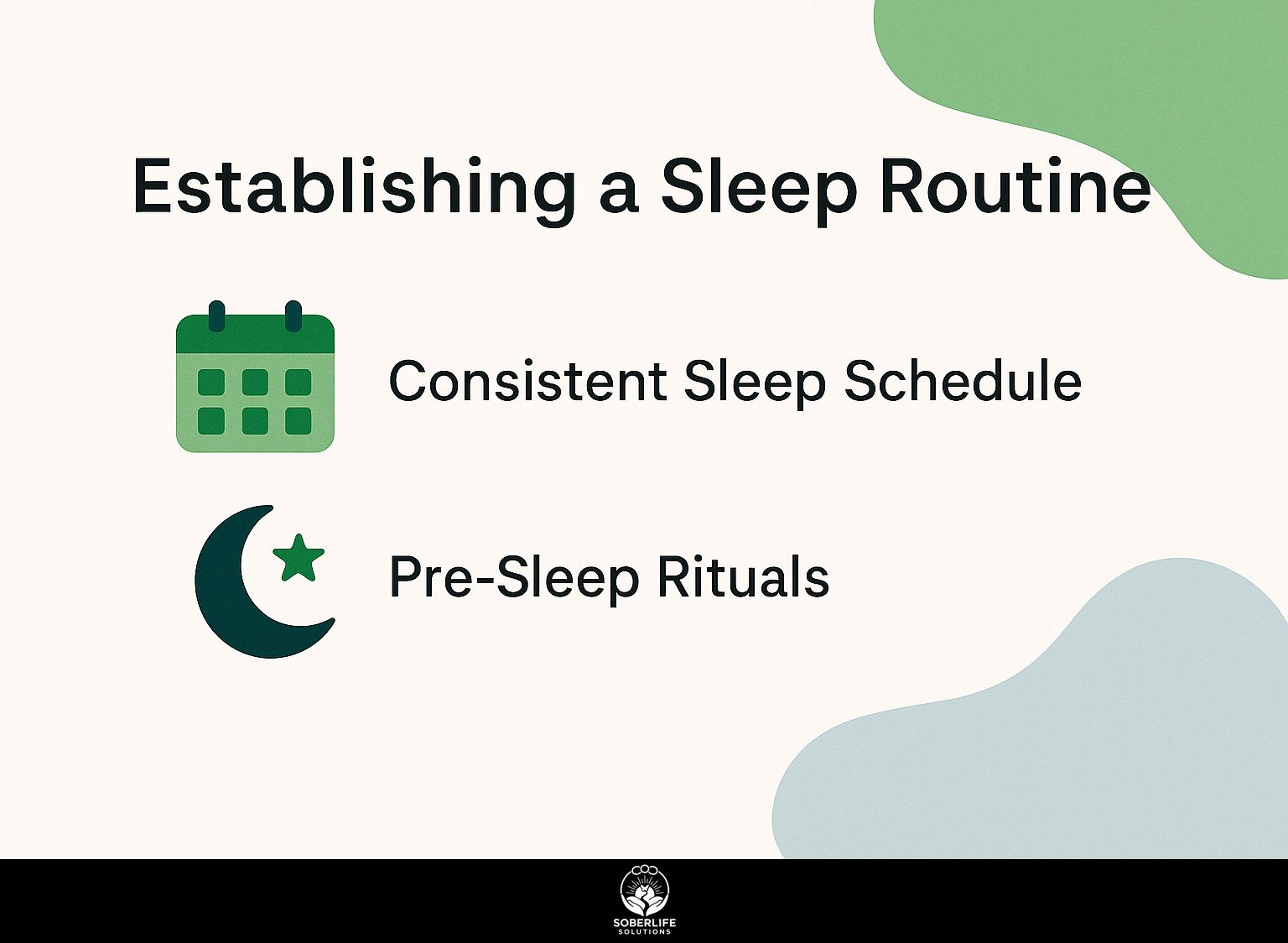
Having a regular sleep schedule is important for better recovery and health during addiction treatment. For those interested in understanding the connection between sleep and cravings, check out this detailed article on the sleep and cravings connection.
Consistent Sleep Schedule
Maintaining a consistent sleep schedule is shown to help alleviate withdrawal symptoms and improve mood stability.
Go to bed and get up at the same time each day, ideally between 10 PM and 6 AM.
Use alarms to reinforce these times, even on weekends. Tools like Sleep Cycle can monitor your sleep habits and give you information about how well you’re sleeping.
Adjust your bedtime gradually if needed-15 minutes earlier or later each night until you reach your desired schedule. This method can greatly improve your sleep quality and mental health.
Pre-Sleep Rituals
Doing activities like mindfulness and relaxation before bed can greatly improve sleep quality for people in recovery.
To include helpful routines before bed, try doing gentle yoga or stretches to ease any tightness. Spend time reading or journaling before bed to center your thoughts.
Guided meditation can be beneficial-apps like Headspace provide structured practice, ranging from free to $12.99/month. It’s also wise to limit screen time at least an hour before sleep to reduce blue light exposure.
Sipping on herbal teas, such as chamomile, can promote relaxation and ease the transition to sleep.
Creating a Sleep-Friendly Environment
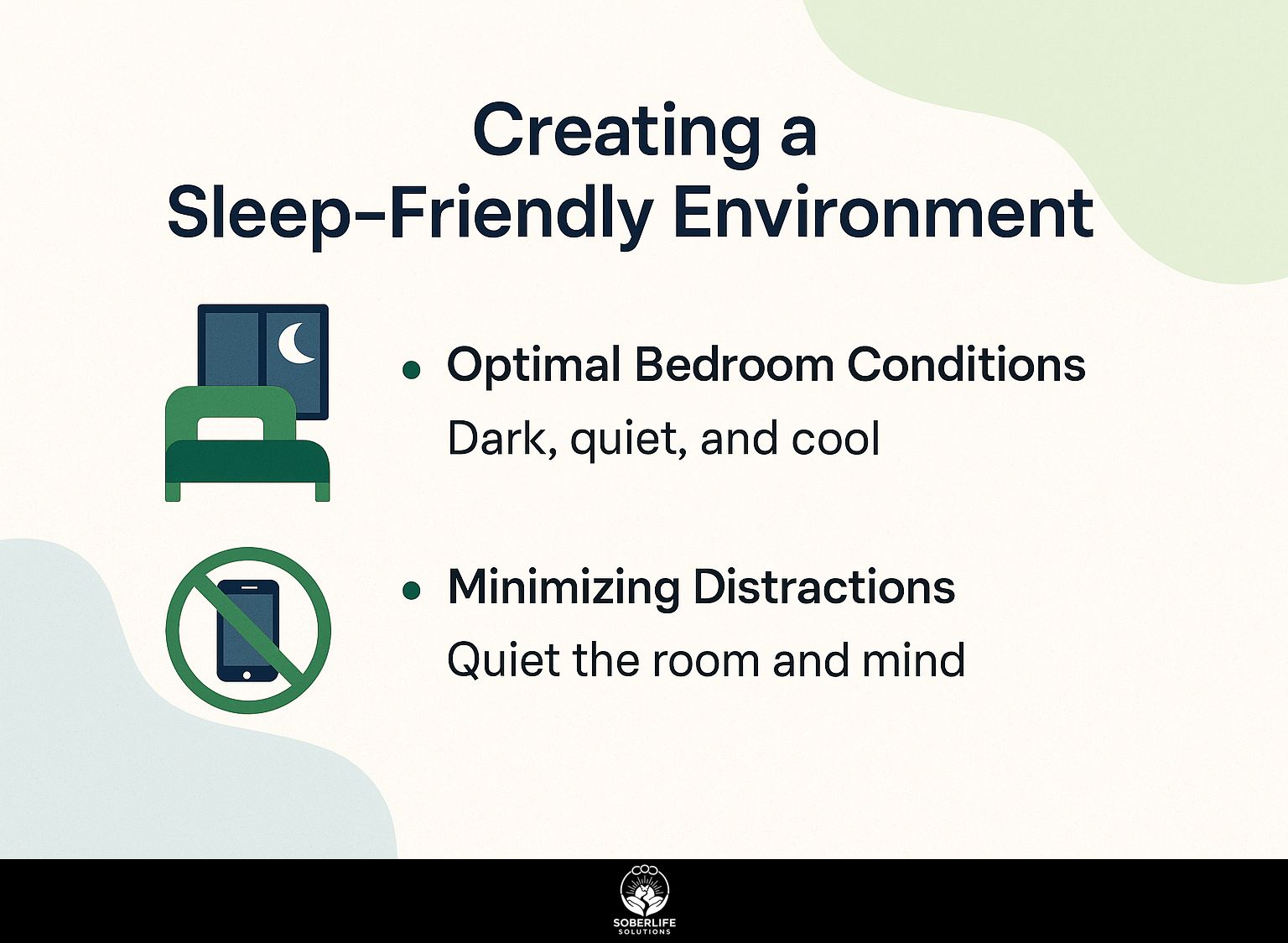
Creating a restful space is essential for getting good sleep, particularly when recovering from addiction.
Optimal Bedroom Conditions
A bedroom that is dark, cool, and quiet can greatly improve how well you sleep.
- Aim for a room temperature between 60-67 degreesF, as research indicates this range promotes deeper sleep, a fact also supported by the Sleep Foundation.
- Invest in blackout curtains to eliminate light pollution, which can reduce sleep disturbances.
- You might try a white noise machine such as the LectroFan ($45) to cover up annoying noises; research indicates white noise can increase sleep time by 25%.
With these changes, many people say they fall asleep faster and sleep much better overall.
Minimizing Distractions
Minimizing distractions, particularly from electronics, is essential for maintaining good sleep hygiene and supporting recovery.
To create a more peaceful space, begin by using certain methods.
Use apps like Forest to help limit your phone usage; this gamifies the experience by rewarding you for staying focused.
Implement a tech-free hour before bed to wind down, allowing your brain to decompress away from screens.
Organize your sleep space by removing clutter and keeping it dark and cool. These changes improve your sleep quality and help your general health.
Nutrition and Sleep
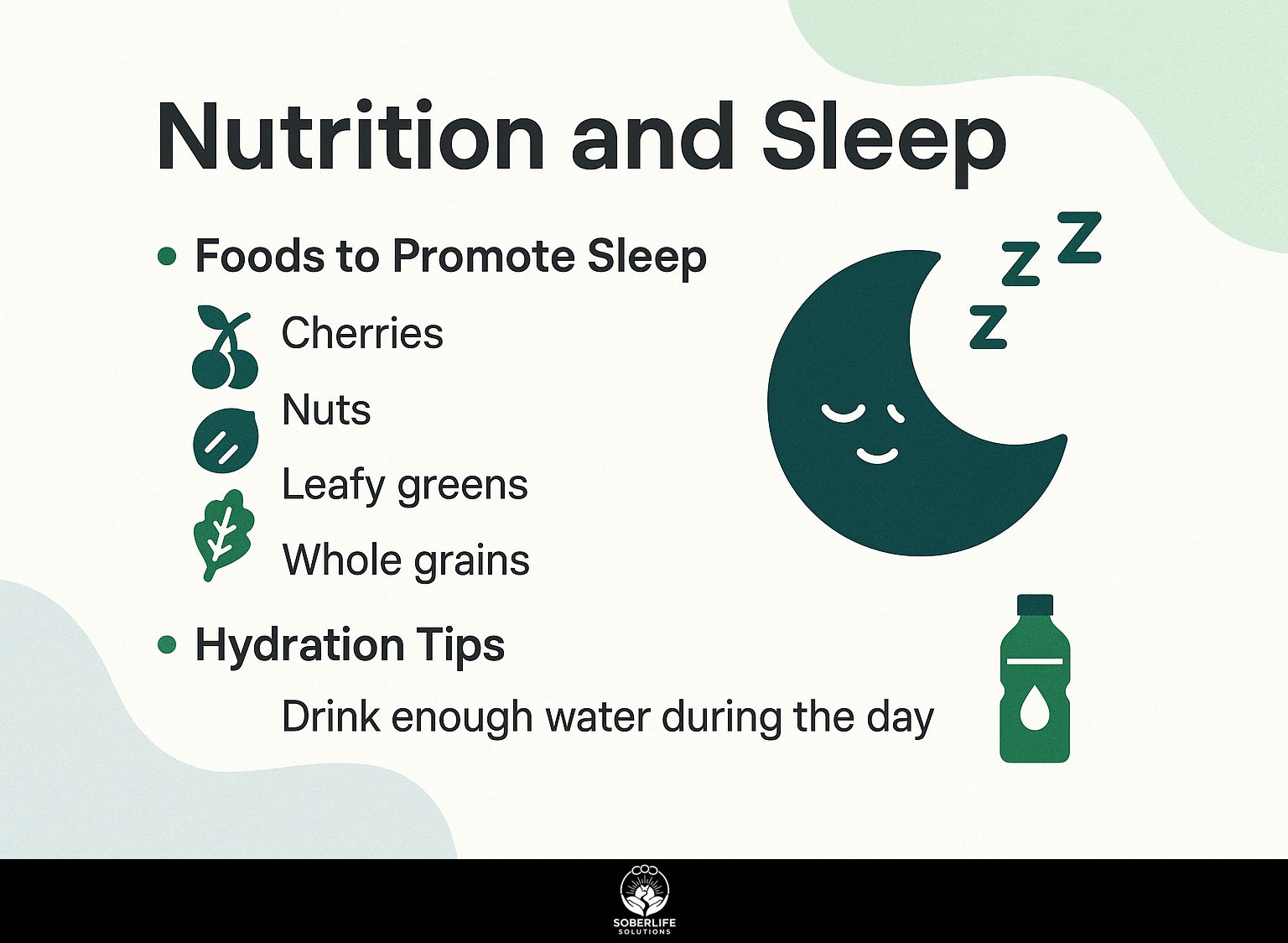
Eating the right foods is important for good sleep, which helps in recovering from addiction. For those seeking effective strategies, our nutrition tips for addiction recovery provide valuable insights into achieving healthier lifestyle choices.
Foods to Promote Sleep
Eating foods high in magnesium, tryptophan, and melatonin can greatly improve sleep by increasing serotonin levels.
Consider snacks like a small bowl of oatmeal topped with sliced almonds or a kiwi. Oatmeal is a complex carbohydrate that may help increase serotonin levels.
Almonds give magnesium and healthy fats, while kiwis are full of antioxidants and serotonin. Together, they create a soothing pre-bedtime treat.
Simply cook quick oats, stir in sliced almonds, and enjoy alongside a fresh kiwi for a calming and nutritious sleep aid.
Hydration Tips
Staying well-hydrated helps you sleep better, particularly when you are recovering.
To stay hydrated, drink water every day that’s equal to half your weight in ounces. For instance, if you weigh 160 pounds, target roughly 80 ounces of water.
Try different approaches such as drinking herbal teas in the afternoon to cut down on caffeine and staying away from alcohol near bedtime since it can disturb your sleep patterns.
Consider using a hydration app such as My Water or WaterMinder to track your intake and remind you to drink throughout the day.
Managing Stress and Anxiety
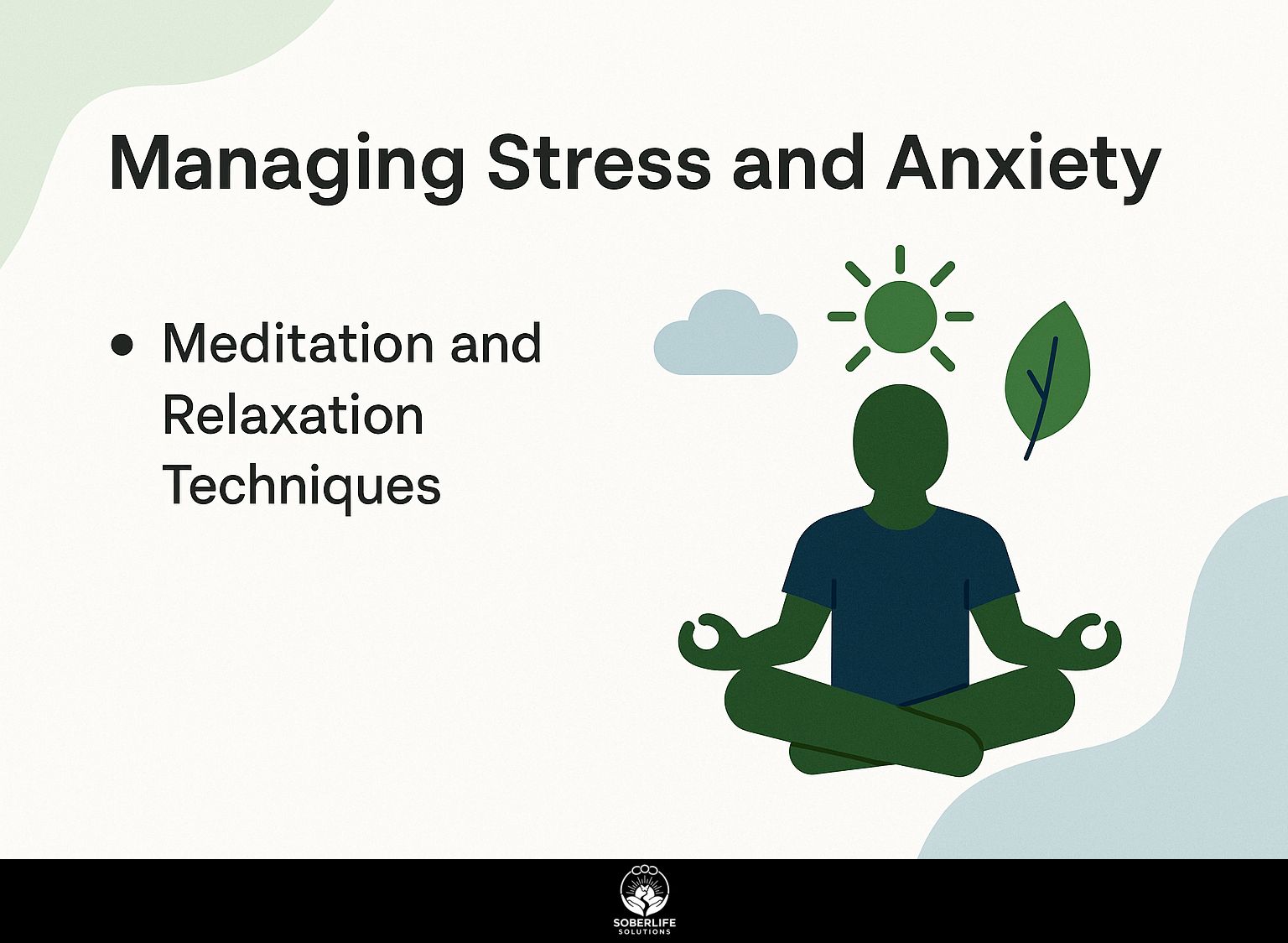
Handling stress and anxiety well is important for better sleep during addiction recovery. For an extensive analysis of this trend, our comprehensive study on improving the quality of life during alcoholism recovery offers valuable insights into managing these challenges effectively.
Meditation and Relaxation Techniques
Practicing meditation and relaxation techniques, such as mindfulness and deep breathing, has been shown to significantly lower anxiety levels and improve sleep.
Here are three effective techniques to consider integrating into your routine.
-
Body scan meditation encourages mindfulness by having you focus on different parts of your body, promoting relaxation. You can use apps like Insight Timer to find free meditation sessions.
-
Guided breathing exercises, available on Calm (free-$14.99/month), help ground you and control stress responses.
-
Progressive muscle relaxation involves tensing and relaxing muscle groups to relieve physical tension.
These methods make you healthier and mentally sharper.
Seeking Professional Help
Recognizing when to get professional help from a sleep expert is important for people dealing with sleep problems while they recover.
When to Consult a Sleep Specialist
If you have ongoing insomnia, it is suggested to see a sleep expert, as this can make recovering from addiction harder.
Recognizing when this consultation is needed is important. Look for chronic insomnia lasting more than three weeks, as it often indicates underlying issues.
Feeling very tired during the day can affect how you function, showing that your sleep issue might be serious. Frequent nightmares can also signal anxiety or trauma-related disorders, which need addressing.
It’s a good idea to have tests like sleep studies to correctly identify sleep problems. By noticing these signs early and getting professional help, you can improve both your sleep and recovery process.
Frequently Asked Questions
What are some quality sleep tips for addiction recovery?
1. Keep a regular sleep routine by going to bed and waking up at the same time every day. This can help control your body’s sleep cycle naturally.
2. Develop a calming bedtime routine, like enjoying a warm bath or reading a book, to prepare your body for sleep.
3. Stay away from caffeine, nicotine, and alcohol before bedtime because they can mess up your sleep and affect how your body recovers.
4. Keep your bedroom cool, dark, and quiet, as these are optimal conditions for quality sleep.
5. Practice mindfulness and relaxation techniques, such as meditation or deep breathing, to calm your mind and promote restful sleep.
6. Get advice from a doctor if you have trouble sleeping while recovering from addiction. They can give individual guidance and help for getting good sleep.

